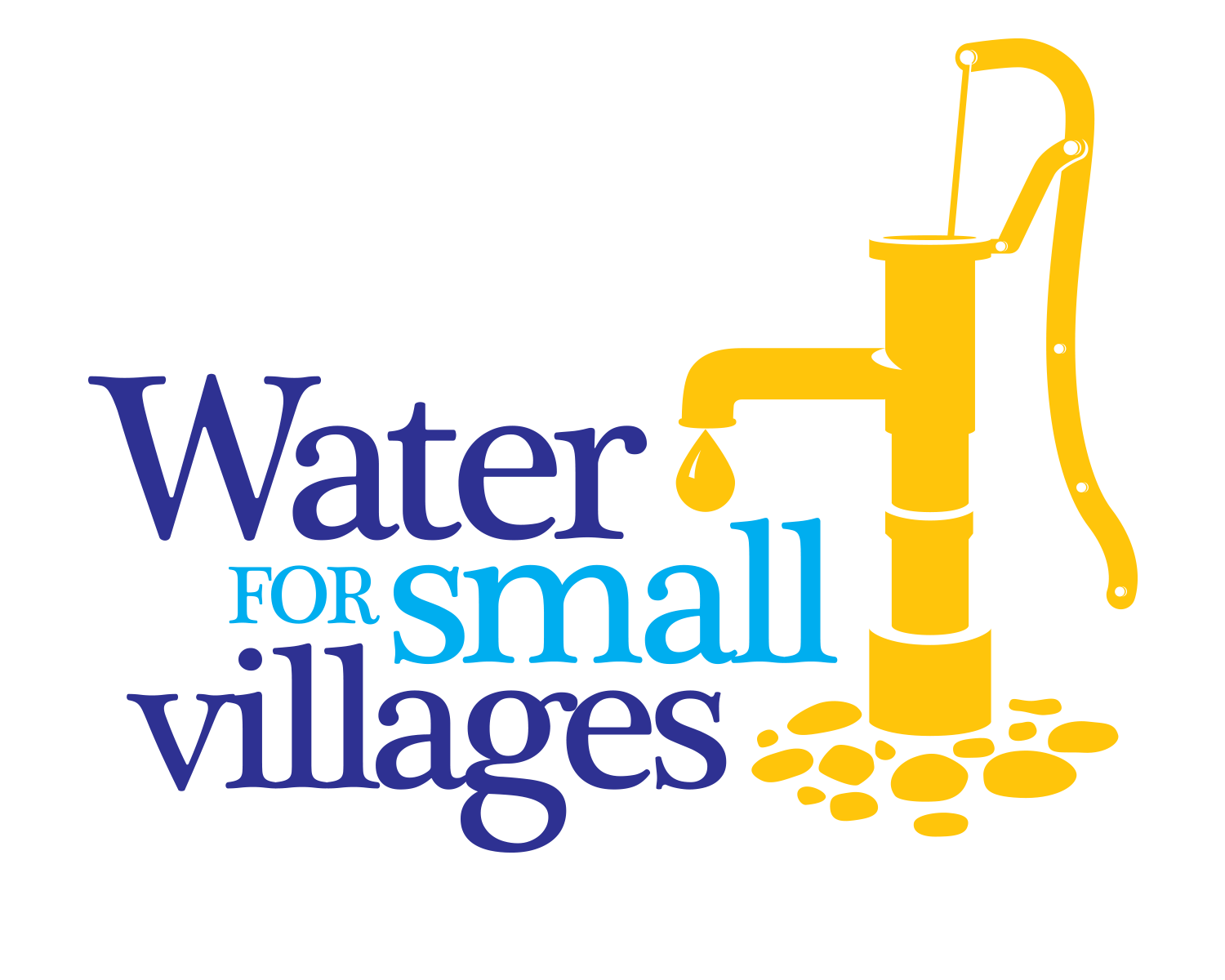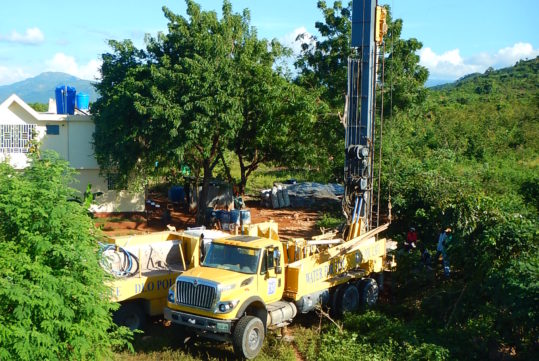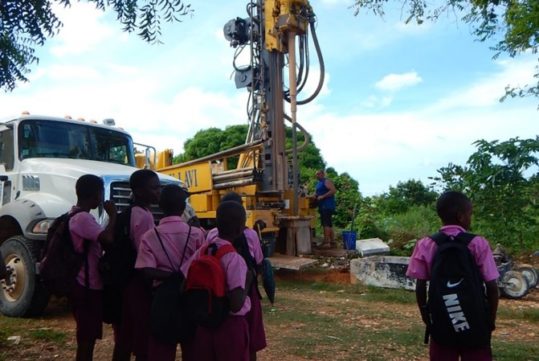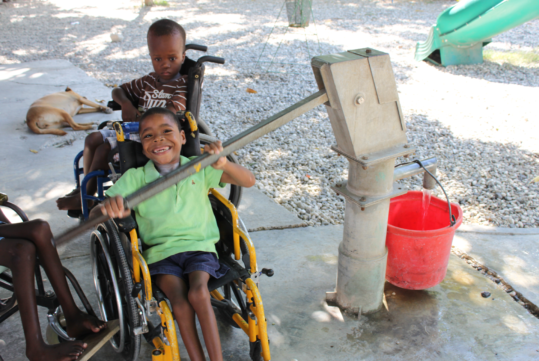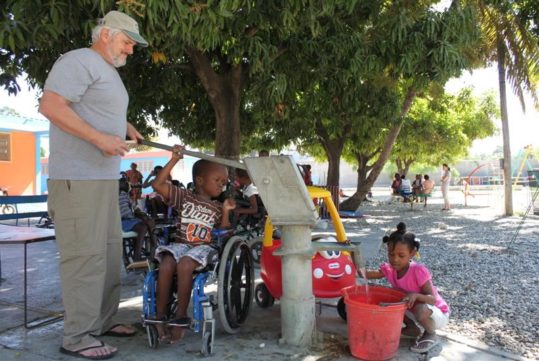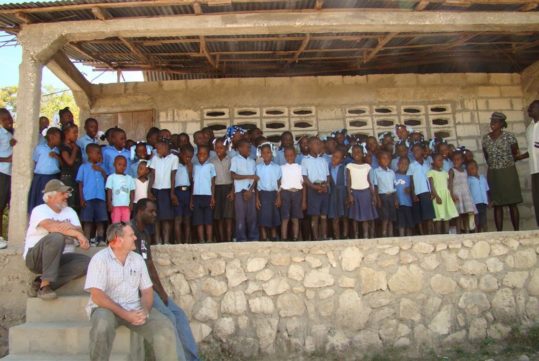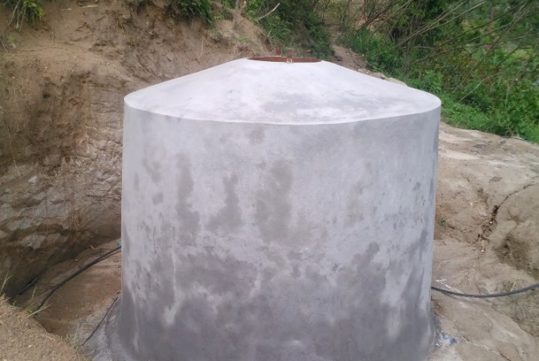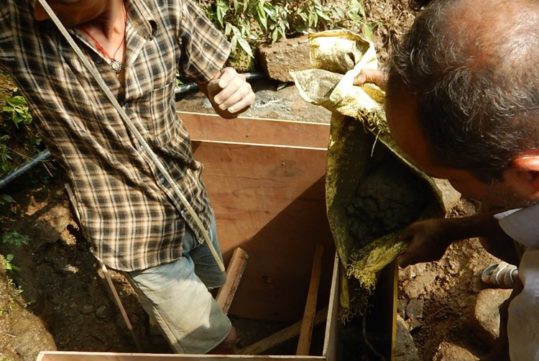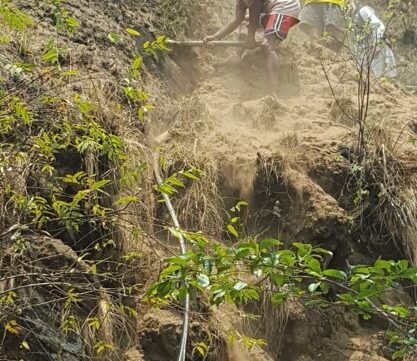Good Samaritan School and Medical Dental Clinic
Verrettes, Haiti
This project was designed to provide water to a school and medical dental clinic used by 220 students, medical/dental professionals, teachers and local residents. WFSV installed a solar powered water system for school and clinic using an existing well. The project included that included disinfection of the existing well, trenching for pipes, construction of a storage room for the pressure tank, chlorinator, and battery, piping and sink installations at the school and clinic, erection of a 20-foot pole to house the solar panels, battery bank installation, and all necessary wiring.
New Life School & Orphanage
Port-au-Prince, Haiti
The school and orphanage had a well that was contaminated but still in use for the 150 children, teachers, and local residents. The well, wellhead and pump were disinfected and repairs were made to the wellhead and pump. Additionally, WFSV staff taught proper hygiene to ensure the water supply remains free of contamination.
St. Marie Madeline School & Church
Kay Timoun Orphanage and nearby village
Bondeau, Haiti
The water at this location supplies about 630 people at the day and boarding school, church, Kay Timon Orphanage, and nearby fishing village.The St. Marie Madeline church is the largest church in in Haiti and is supported spiritually and financially by the South Florida Haiti project, a group of several churches. This support has been (and continues) for a number of infrastructure projects. WFSV began working with the South Florida Haiti Project and the church and orphanage in 2013. At that time, water came from several sources; wells and a mountain stream located about a mile away.
WFSV tested the well water and found the water to be contaminated with total coliform and e coli. Additionally, the water has a specific conductance of about 2,000 micro Siemens, a level higher than recommended for human consumption. The wells were disinfected more than once but the level of contamination was too high to successfully clean.
WFSV researched the geotechnical work done in the general area and conducted ground penetrating radar (resistivity transects) to identify aquifers. The results were not promising but there were several areas where it appeared fresh water might be located. Nine boreholes were drilled with water found in two. The water has a specific conductance of about 3,000 micro Siemens but is free of contamination. Two wells were constructed, one with a hand pump, and the water is used for washing. WFSV has designed a solar powered pump house that will house the batteries and water storage. This is scheduled to be constructed in the first half of 2018.
